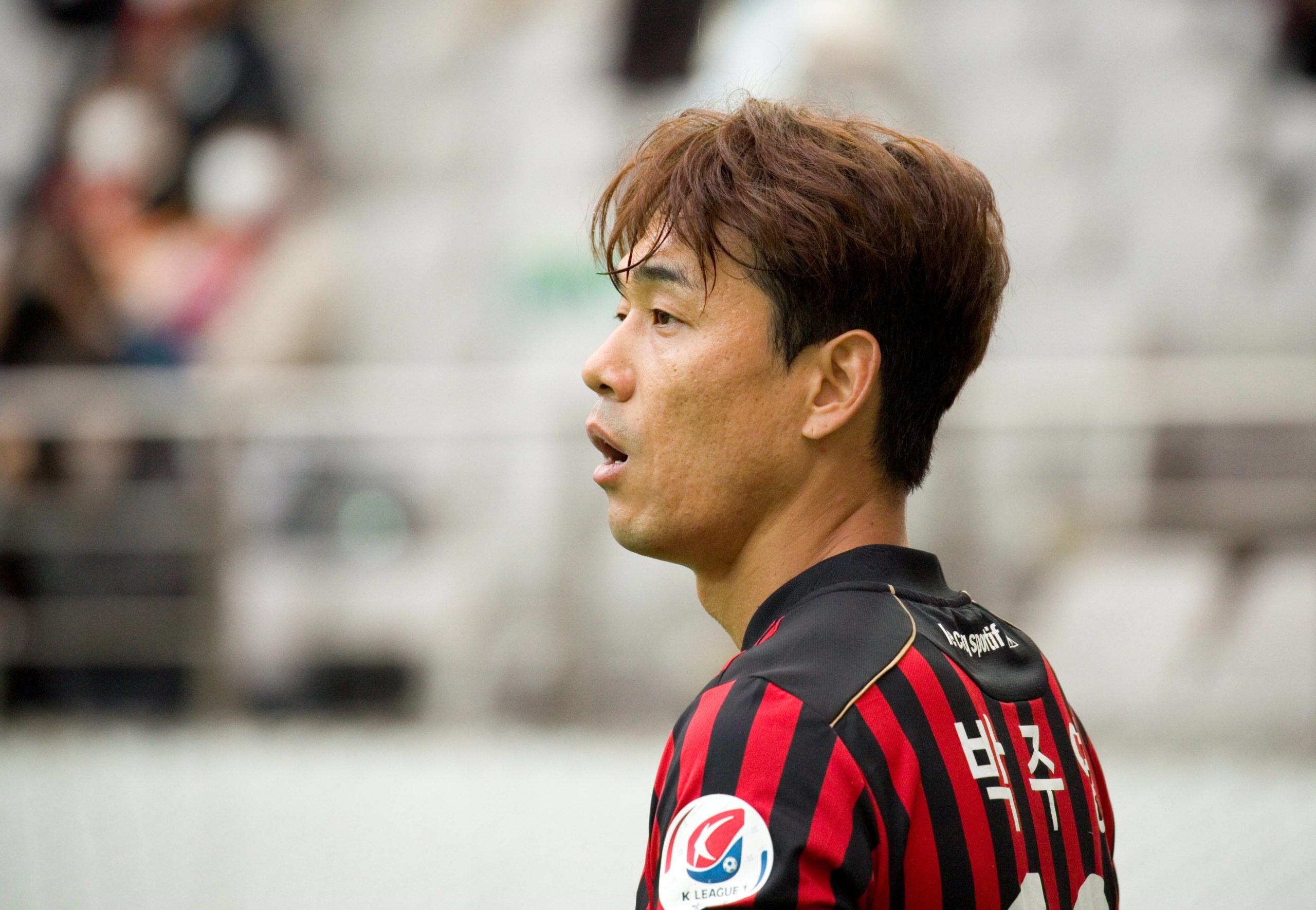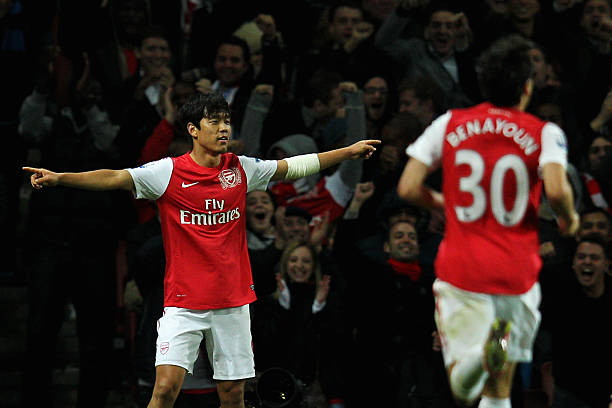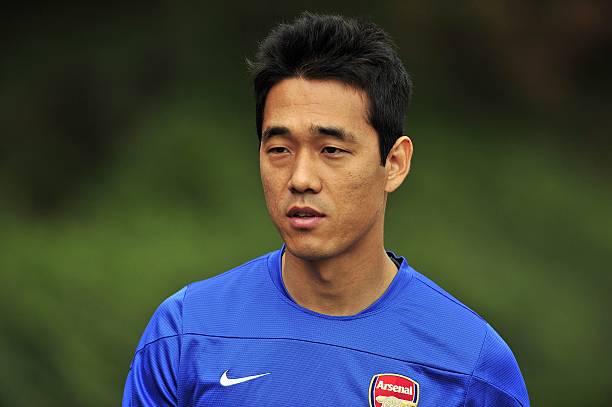Park Chu-young will always be remembered as one of the strangest signings Arsenal ever made, but where is he now and what’s he up to?

Park Chu-young arrived at Arsenal in 2011 when the Gunner’s inexplicably hijacked his move from Monaco to Lille and signed him for £5.85m. “He will add true quality to our attacking forces and will be a valuable addition to the squad,” Wenger said of the player who had just scored 12 goals in 33 Ligue 1 games.
It didn’t quite turn out like that.
In total, Park played just seven times for Arsenal (with one goal) amassing a paltry 310 minutes as the man who hailed him as someone to add ‘true quality’ to the Arsenal attack refused to pick him for any games.
Park famously played just seven minutes in the Premier League, a cameo against Manchester United that seemed designed to do just one thing – increase Arsenal shirt sales in Korea.

One season at Arsenal was enough and Park was loaned to Celta Vigo, then Watford, before being released in 2014. A few months without a club was followed by a move to Al-Shabab Riyadh where he again played just seven times, scoring one goal.
He was released after just four months before re-signing for his first professional club, FC Seoul, in March 2015, where he remained until the start of 2022.
His final move was to Ulsan Hyundai where he has made 11 appearances, scoring one goal, in the past year.
Now 38, it’s not clear when Park’s contract expires.
We will probably never understand what really went on to bring Park to Arsenal. Despite Wenger’s assertions that he could play for the club and would be needed to cover when players left for the Africa Cup of Nations, the Frenchman’s words and actions never matched up and it was clear he didn’t rate the forward.
In fact, using data from StatDNA, Hendrik Almstadt, who had been tasked by Ivan Gazidis to ‘cast a financial expert’s eye over Arsenal’s squad’s composition’ showed clearly that Park would flop.
He was able to demonstrate that Park simply didn’t have what it takes to make it at Arsenal using more data from StatDNA, prompting Wenger to admit he would not have signed Park had he had access to this data beforehand, according to ‘Football Hackers’ by Christoph Biermann.
The move to Arsenal was a costly one for Park as well. He was captain of his national side when he arrived in London, but a lack of playing time cost him his place and the armband. Park’s form never really recovered in either domestic or international football.
Park was 26 when he arrived at Arsenal and had scored 15 goals for his country after making his debut for South Korea when he was just 19. Following his Arsenal move, over 12 years ago, Park scored just another nine for his country and has not featured for them at all since 2014.
25 goals, with four assists, in 62 games at senior international level is a very good return and it’s easy to see why he was Korea’s Golden Boy when he arrived at Arsenal.
Park scored 12 league goals and 18 in all competitions when he first broke into the FC Seoul side, picking up the coveted K League Young Player of the Year award. Within three seasons, despite injury problems, he landed his big move to Europe with Monaco, costing the French side £1.8m.
By the time Park had left Arsenal permanently three years later, his career had been trashed.
Who knows what he could have achieved if he’d opted to ignore Arsenal’s call in 2011 and carry on with his Lille medical instead…

